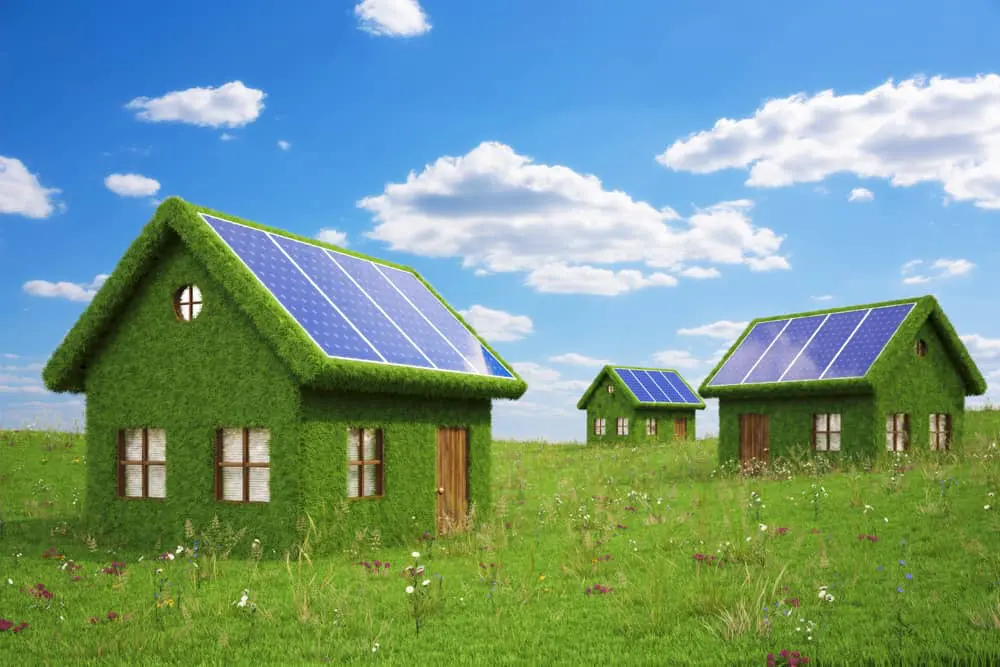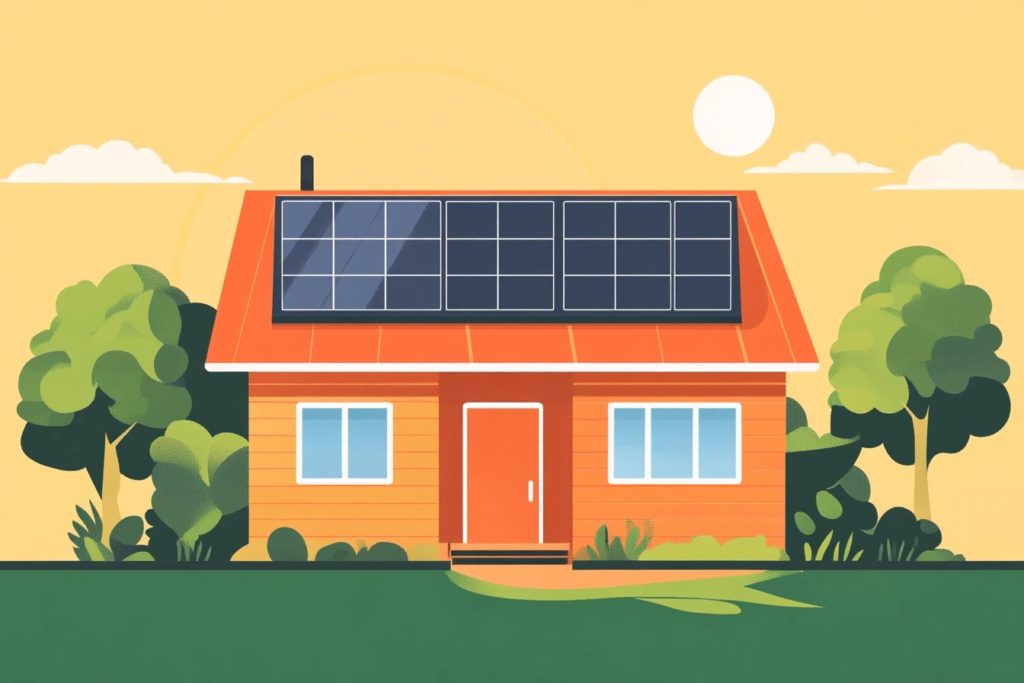In every corner of the country, homeowners are adding solar power systems to their homes, allowing them to reap the benefits of financial savings and environmental responsibility. Before you set up your own residential solar panels, you should have a strong understanding of everything you’ll need to get your solar system up and running. As it turns out, there can be quite a bit of solar equipment required, but your specific home may not need every single component discussed in this article. Let’s take a look at the equipment needed for solar power and figure out what you’ll need to purchase for your new residential solar panels!
Five Core Components of Residential Solar Equipment
Solar Panels
For most homes, there are five core components of residential solar equipment. The most important item is your solar panels. There are many different styles and sizes of solar panels available, and which ones you choose comes down to the details of your home. In general though, if you want the most efficient panels possible, you’ll want to go with monocrystalline panels. However, if you’re seeking a more affordable option, you might want to take a look at polycrystalline panels, which don’t operate as efficiently but also cost significantly less money.
Solar Inverter
Once you’ve acquired your solar panels, the next piece of solar equipment you’ll need is the inverter. Your solar panels typically harvest energy in the form of direct current (DC). However, almost all residences use alternating current (AC). Therefore, you’ll need a solar inverter to convert the DC energy to AC energy that your home can use. The most affordable option is a string inverter, which you’ll connect to your solar panels. Because the entire system operates on one inverter, any performance issues present in any of your panels will affect the whole “string” or system.
For maximum efficiency, you can spend the extra money on micro-inverters, which you attach to each panel. That way, any efficiency loss present in your system is isolated to one individual panel while the rest of your system continues to operate at peak efficiency. There is also an in-between option known as a power optimizer, with costs and efficiency occupying the middle ground between string inverters and micro-inverters.
Micro-inverters and power optimizers are usually the best options for roofs that don’t face south or don’t have enough room to orient all of your panels at the same angle. On the other hand, if your roof does face south and has plenty of space for panels, you can likely get by with a string inverter. If you’re not sure which solar power equipment option is the right one for your needs, speak with a qualified solar installer.
Solar Racks and a Performance Monitoring System
Most homeowners will also need solar racks to mount panels on their roofs, along with a performance monitoring system to track your residential solar system’s output. The majority of people choose to install their solar power equipment on their roofs, but some applications require ground mounting. For instance, if your roof is heavily shaded or has an extreme angle, you may need to opt for a more expensive ground-mounted system.
Solar Batteries
Especially if you live in a state that doesn’t have net metering, you’ll also likely need solar batteries to store your electricity. With net metering, you can transfer any additional energy back into the grid. In exchange, your local utility will provide energy for your home during times when your solar panels aren’t producing as much energy. However, not all states offer net metering. If yours doesn’t, solar batteries are a must.
Safety Equipment
The next step in solar equipment acquisition is safety equipment. You will want safety disconnects to protect your system from power surges and isolate your solar panels from the grid. Grounding equipment is also crucial because it can prevent surges due to things like lightning strikes, malfunctioning solar power equipment, and more.
At this point, the most important question remaining for your residential solar equipment is who should install it? How do you find the right local installer to set up your solar power equipment? Fortunately, LGCY Power is here to help. If you’re looking for reputable, certified solar installers in your local area, simply schedule a consultation with one of our highly qualified professional Solar Consultants.
LGCY Power’s Solar Consultants are true experts in the residential solar power industry, and we can help you acquire every piece of solar equipment needed to build your new system. We can also design your new solar energy system, acquire all relevant permits from government agencies, and install your solar power equipment. LGCY Power will even collaborate with your local utility provider to connect your system to the grid and activate your panels.
We aim to make the entire setup process as quick and easy as possible, getting you ready to reap the rewards of residential solar energy. Contact us today to learn what makes LGCY Power the best residential solar provider in the nation! We’ll get you on your way to saving money and protecting our environment in no time.





